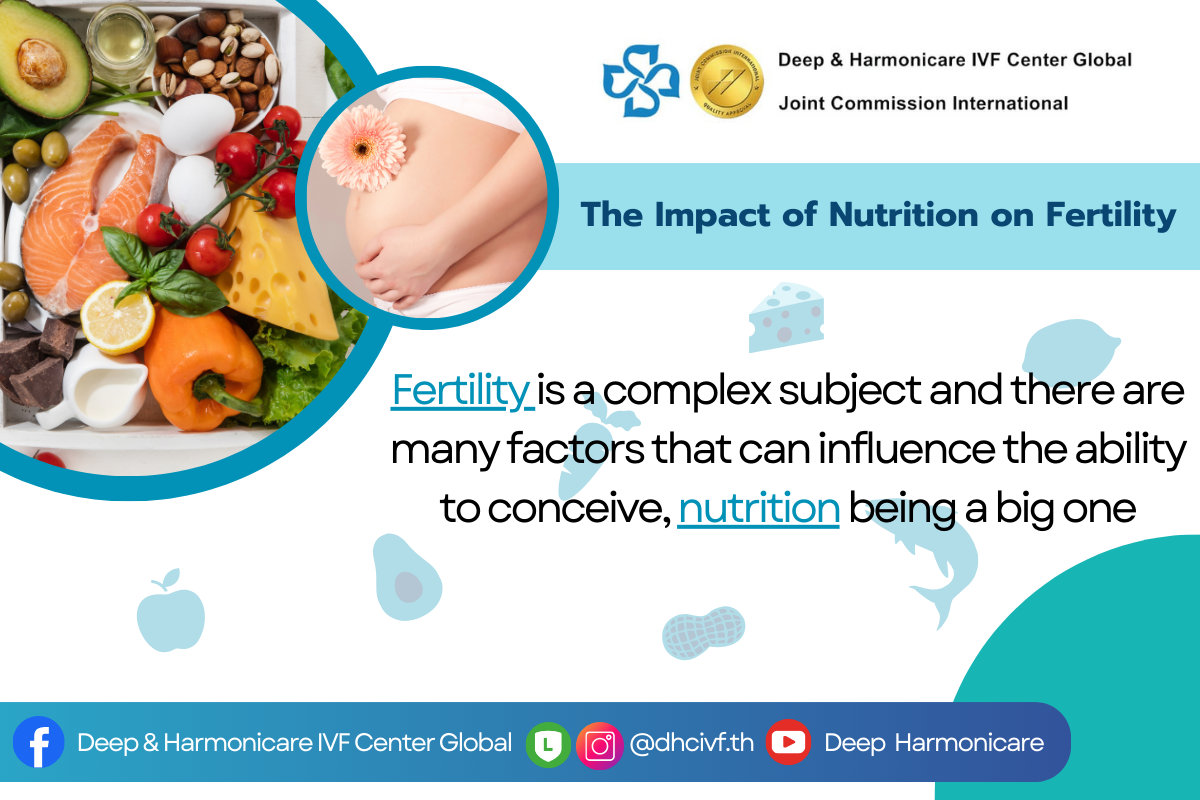The Impact of Nutrition on Fertility
Fertility is a complex subject and there are many factors that can influence the ability to conceive, nutrition being a big one. The impact your diet can have on your reproductive health can encourage couples to make informed choices that will support their fertility goals. As it’s a major talking point for couples looking to conceive, we have looked into essential nutrients for fertility and which food to include and avoid. We’ll also touch on antioxidants, weight management, hydration and special dietary considerations.
Nutrients Essential for Fertility
Consumers proper nutrition can significantly impact your reproductive health. The following are essential if you want to enhance your fertility:
- Folic Acid – This is important for DNA synthesis and repair, folic acid is crucial for female as well as male fertility. It naturally occurs in leafy green vegetables, citrus fruits, and fortified cereals. Supplemental folic acid was also shown to be effective, particularly in women with unexplained infertility (study here).
- Iron – Getting enough iron can help prevent anaemia and can support ovulation. Good sources of iron include lean meats, beans, buts and dried fruit (dried apricots are great).
- Zinc – Foods that are rich in zinc include oysters, crabs, beef, as well as non-meat produce such as legumes, nuts, seeds and whole grains, all of which are important for hormone production and ovulation.
- Omega-3 Fatty Acids – These fatty acids can reduce inflammation and support hormonal balance. You can find them naturally in fatty fish like salmon and mackerel as well as nuts and seeds like walnuts and flaxseed.
- Vitamins C & D – Citrus fruit and dairy products are fantastic sources of vitamins. Each play their own role: Vitamin C supports healthy sperm whereas vitamin D plays an essential role in hormone regulation.
Foods to Eat as Part of a Fertility Boosting Diet
Including a variety of nutrient dense food into your diet and help improve your overall fertility. Check out our list below and try incorporating them into your meals.
- Leafy greens: Spinach, kale and other leafy greens, all of which are good sources of folic acid and iron.
- Nuts and Seeds: Almonds, walnuts, chia seed and flaxseed provide essential fatty acids and zinc.
- Fatty Fish: Salmon, mackerel and sardines are a rich source of omega-3 fatty acids.
- Lean Meats: Chicken and turkey offer a good source of iron and protein without as much fat.
- Whole Grains: Brown rice, quinoa, and oats provide complex carbohydrates and fibre.
- Dairy Products: Yogurt, cheese and milk can provide you with a rich source of calcium and vitamin D.
What Food Should You Avoid?
It may come as no surprise that there is food that should be avoided or at the very least limited as they can have a negative impact on fertility.
- Trans Fat: You can find these in most processed food and need to be avoided as they can interfere with insulin sensitivity
- Excess Sugar: Food with excessive or added sugar can lead to weight gain and hormonal imbalances which can affect fertility.
- Caffeine: High levels of caffeine can affect your hormone balance and impact ovulation so it’s best to avoid or limit drinks that are high in caffeine.
- Alcohol: Alcohol can negatively impact sperm quality and female reproductive health.
Antioxidants
Antioxidants are important for protecting reproductive cells from oxidative stress, which can damage both sperm and egg cells. Food to look out for that are high in antioxidants include:
- Berries: Blueberries, strawberries and raspberries.
- Nuts and Seeds: In particular almonds and sunflower seeds.
- Vegetables: Carrots, sweet potatoes and bell peppers.
The Connection Between Weight Management and Fertility
It probably comes as no surprise that being a healthy weight is very important for good fertility. If you are considerably over or underweight individuals can experience hormonal imbalances that will affect ovulation and sperm production. If you’re looking for personalized advice or advanced fertility treatments, you can visit our IVF center where experts can guide you through tailored options.
If you eat a balanced diets and partake in regular exercise it can help you become and maintain a healthy weight, which in turn will improve fertility.
Hydration and Fertility
Staying well hydrated is always recommended and important for overall health as well as fertility. Being properly hydrated helps to make sure that hormones and nutrients travel correctly throughout the body as well as being essential for the production of cervical mucus which helps sperm reach the egg.
Special Dietary Needs
There are certain conditions such as polycystic ovary syndrome (PCOS) and endometriosis, that require specific dietary considerations:
- PCOS: A diet low in refined carbohydrates and high in fibre can help manage insulin levels and reduce symptoms.
- Endometriosis: To help manage symptoms of endometriosis (sometimes referred to as endo) it recommended to eat an anti-inflammatory diet rich is fruit, vegetables and omega-3 fatty acids.
I hope you’ll be able to understand after reading this article the importance proper diet and nutrition have on fertility. If you focus on a balanced diet that is rich in essential nutrition, avoid or limit harmful (processed) foods, individual can improve their reproductive health. Whether you are trying to conceive or just looking to improve your fertility, making mindful choices can does make a significant difference.





